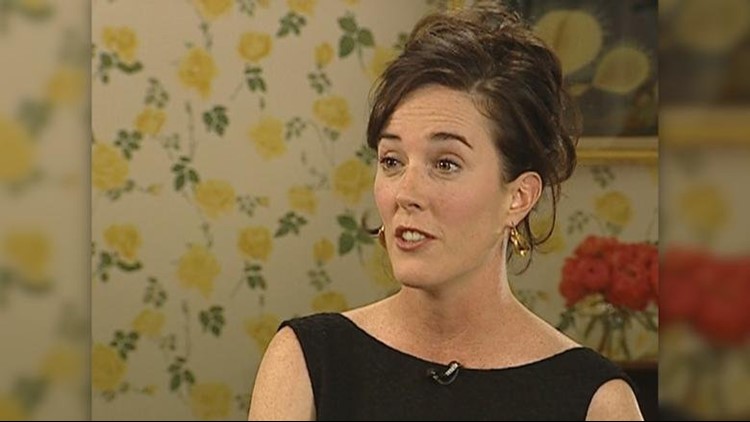NEW YORK (CNN Opinion) — There are more of us suicide loss survivors than some might think.
I was sitting at my desk when a push notification came on my phone about Kate Spade’s suicide, and I felt a rush of vertigo, as if the room had tipped sideways. I had to clutch the arms of my desk chair to steady myself, had to take a few deep breaths.
My mother took her own life in 2009, and whenever I hear news of a suicide, it both reopens that grief and sends my heart hurtling toward the freshly grieving family, the family reeling from shock and pain.
In America, according to the Centers for Disease Control and Prevention, a person dies by suicide every 13 minutes. According to the World Health Organization, close to 800,000 people take their own lives worldwide every year.
That’s 800,000 hearts intentionally stilled. Millions of loved ones left to grapple with confusion and regret and anger and guilt, along with the particularly complicated grief that suicide leaves in its wake.
When my mother died, I felt isolated; I couldn’t remember knowing anyone personally who had lost a loved one to suicide. Since then, I’ve learned that several friends had faced such loss, but their families had wanted them to keep the circumstances silent; since then, a few of my closest friends have lost loved ones to suicide. It’s a common form of grief, just not a commonly talked about one.
It helps to know we are not alone. It helps to talk about suicide loss, to give this often-stigmatized grief air and light so we can process, heal, and let go of lingering ghosts of shame.
As much as we need to talk about this, the media must take care to report on suicide responsibly and with respect for the loved ones left behind. New stories about Kate Spade’s death have been graphic, have given specific details that are surely traumatizing for those who knew and loved Spade (as well as for suicide loss survivors like myself who lost loved ones to the same method). This type of reporting carries the danger of inspiring “suicide contagion.” The Ohio Suicide Reporting Guidelines state: “Celebrity deaths by suicide have a strong potential to contribute to suicide contagion due to frequency and depth of reporting, as well as the likelihood that the public feels they can identify with such well-known individuals” and notes that including specific details can contribute to such “contagion.”
I am grateful that many media outlets provide resources for those in crisis when reporting on suicide, resources such as The National Suicide Hotline, 1-800-273-8255, and the Crisis Text Line (text HOME to 741741).
Not as commonly reported is the fact that there are also helpful resources for those facing suicide loss.
The American Foundation for Suicide Prevention sponsors the annual International Suicide Survivors Day in November, with events around the world. The foundation also organizes annual Out of the Darkness walks and can help survivors find a suicide loss support group, as well as other forms of help.
The American Association of Suicidology offers an annual “Healing After Suicide”conference, along with other resources.
Books can also help. The ones I found most useful during the depths of my grief were those with a deeply personal, narrative approach, like “The Suicide Index” by Joan Wickersham, “History of a Suicide” by Jill Bialosky, Nick Flynn’s memoirs and poetry collections (which all deal, in part,with his mother’s suicide), and “The Guardians” by Sarah Manguso. There are also academic approaches, like “November of the Soul: The Enigma of Suicide” by George Howe Colt, and “Stay: A History of Suicide and the Arguments Against It,” by Jennifer Michael Hecht.
There are a number of wonderful self-help books about suicide loss out there, too. Every survivor of suicide loss should seek out the resources that speak to them and what they need most directly and clearly. None of us have the exact same path, but we can help shed light along one another’s journey through grief.
At this point, the Spade family is probably not ready for resources like books; right now, they need to absorb the shock of this loss, to be surrounded by love. I remember the horror and pain of those early days after my mother’s suicide, when I could barely put together a coherent sentence, and I very much hope the media will not hound the Spade family during this devastating time. It is unfair and cruel to ask grieving, reeling family members to find words for a fresh loss that can feel beyond comprehension.
Let’s respect the families of those touched by suicide, even as we keep talking about suicide. Let’s stop hiding this loss and let’s report about it with care. So many of us are touched by suicide, and when we reach out to one another and tell our stories the right away, we can help each other survive.



